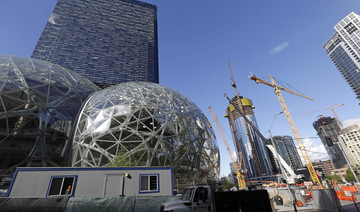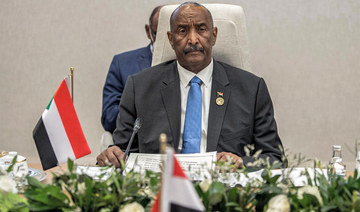SEATTLE: Amazon’s decision to market a powerful face recognition tool to police is alarming privacy advocates, who say the tech giant’s reach could vastly accelerate a dystopian future in which camera-equipped officers can identify and track people in real time, whether they’re involved in crimes or not.
It’s not clear how many law enforcement agencies have purchased the tool, called Rekognition, since its launch in late 2016 or since its update last fall, when Amazon added capabilities that allow it to identify people in videos and follow their movements almost instantly.
The Washington County Sheriff’s Office in Oregon has used it to quickly compare unidentified suspects in surveillance images to a database of more than 300,000 booking photos from the county jail — a common use of such technology around the country — while the Orlando Police Department in Florida is testing whether it can be used to single out persons-of-interest in public spaces and alert officers to their presence.
The American Civil Liberties Union and other privacy advocates on Tuesday asked Amazon to stop marketing Rekognition to government agencies, saying they could use the technology to “easily build a system to automate the identification and tracking of anyone.”
That could have potentially dire consequences for minorities who are already arrested at disproportionate rates, immigrants who may be in the country illegally or political protesters, they said.
“People should be free to walk down the street without being watched by the government,” the groups wrote in a letter to Amazon on Tuesday. “Facial recognition in American communities threatens this freedom.”
In an emailed statement, Amazon Web Services stressed that it requires all of its customers to comply with the law and to be responsible in the use of its products.
The statement said some agencies have used the program to find abducted people, and amusement parks have used it to find lost children. British broadcaster Sky News used Rekognition to help viewers identify celebrities at the royal wedding of Prince Harry and Meghan Markle last weekend.
Amazon’s technology isn’t that different from what face recognition companies are already selling to law enforcement agencies. But its vast reach and its interest in recruiting more police departments — at extremely low cost — are troubling, said Clare Garvie, an associate at the Center on Privacy and Technology at Georgetown University Law Center.
“This raises very real questions about the ability to remain anonymous in public spaces,” Garvie said.
While police might be able to videotape public demonstrations, face recognition is not merely an extension of photography but a biometric measurement — more akin to police walking through a demonstration and demanding identification from everyone there, she said.
Some police departments, including Seattle, have policies that bar the use of real-time facial recognition in body camera videos.
Amazon released Rekognition in late 2016, and the sheriff’s office in Washington County, west of Portland, became one of its first law enforcement agency customers.
A year later, deputies were using it about 20 times a day — for example, to identify burglary suspects in store surveillance footage. Last month, the agency adopted policies governing its use, noting that officers in the field can use real-time face recognition to identify suspects who are unwilling or unable to provide their own ID, or if someone’s life is in danger.
“We are not mass-collecting. We are not putting a camera out on a street corner,” said Deputy Jeff Talbot, a spokesman for the sheriff’s office. “We want our local community to be aware of what we’re doing, how we’re using it to solve crimes — what it is and, just as importantly, what it is not.”
It cost the sheriff’s office just $400 to load 305,000 booking photos — which are already public records — into the system and $6 a month in fees to continue the service, according to an email obtained by the ACLU under a public records request.
Last year, the Orlando, Florida, Police Department announced it would begin a pilot program relying on Amazon’s technology to “use existing city resources to provide real-time detection and notification of persons-of-interest, further increasing public safety.”
Orlando has a network of public safety cameras, and in a presentation posted to YouTube this month , Ranju Das, who leads Amazon Rekognition, said the company would receive feeds from the cameras, search them against photos of people being sought by law enforcement and notify police of any hits.
“It’s about recognizing people, it’s about tracking people, and then it’s about doing this in real time, so that the law enforcement officers ... can be then alerted in real time to events that are happening,” he said.
The Orlando Police Department said in an email that it “is not using the technology in an investigative capacity or in any public spaces at this time.”
The testing has been limited to eight city-owned cameras and a handful of officers who volunteered to have their images used to see if the technology works, Sgt. Eduardo Bernal wrote in an email Tuesday.
“As this is a pilot and not being actively used by OPD as a surveillance tool, there is no policy or procedure regarding its use as it is not deployed in that manner,” Bernal wrote.
The privacy advocates’ letter to Amazon followed public records requests from ACLU chapters in California, Oregon and Florida. More than two dozen organizations signed it, including the Electronic Frontier Foundation and Human Rights Watch.
Amazon urged not to sell facial recognition tool to police
Amazon urged not to sell facial recognition tool to police
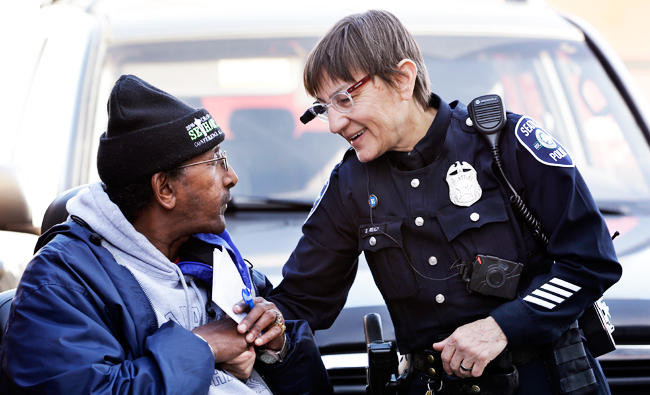
- Facial recognition in American communities threatens this freedom
- Amazon's technology isn't that different from what face recognition companies are already selling to law enforcement agencies
India protests separatist slogans allowed at Toronto event
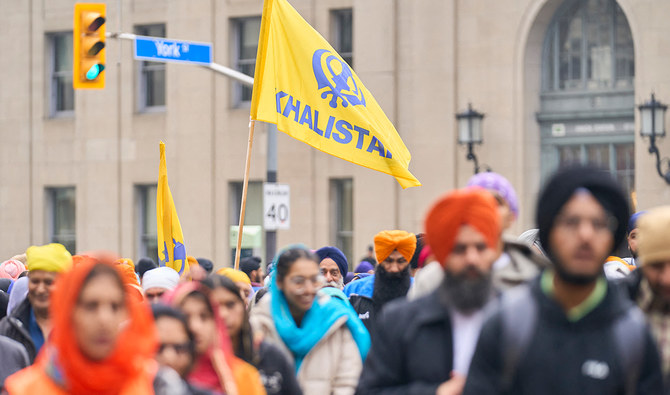
- Bilateral relations soured last year after Canada linked Indian agents to June 2023 murder of its national
- Hardeep Singh Nijjar, 45, was shot dead outside a Sikh temple in Surrey, which has a large Sikh population
NEW DELHI: India summoned the Canadian Deputy High Commissioner on Monday and expressed “deep concern and strong protest” after separatist slogans in support of a Sikh homeland were raised at an event addressed by Prime Minister Justin Trudeau.
Bilateral diplomatic relations soured last year after Trudeau said Canada was “actively pursuing credible allegations” that Indian agents were potentially linked to the June 2023 murder of a Canadian citizen.
Hardeep Singh Nijjar, 45, was shot dead outside a Sikh temple on June 18 in Surrey, a Vancouver suburb with a large Sikh population. Nijjar supported a Sikh homeland in the form of an independent Khalistani state and was designated by India as a “terrorist” in July 2020.
New Delhi has denied any formal government role in Nijjar’s murder.
India’s foreign affairs ministry said on Monday it had conveyed “deep concern and strong protest” at such actions “being allowed to continue unchecked at the event.”
Slogans supporting the rise of a separatist state were raised at an event in Toronto, according to ANI news agency, in which Reuters has a minority stake.
“We will always be there to protect your rights and your freedoms, and we will always defend your community against hatred and discrimination,” ANI reported Trudeau as saying.
Canada has the highest population of Sikhs outside their home state of Punjab in India, and the country has been the scene of many demonstrations that have irked India.
The Canadian foreign ministry did not immediately respond to a request for comment.
UN asks South Sudan to remove new taxes that led to a pause in food airdrops
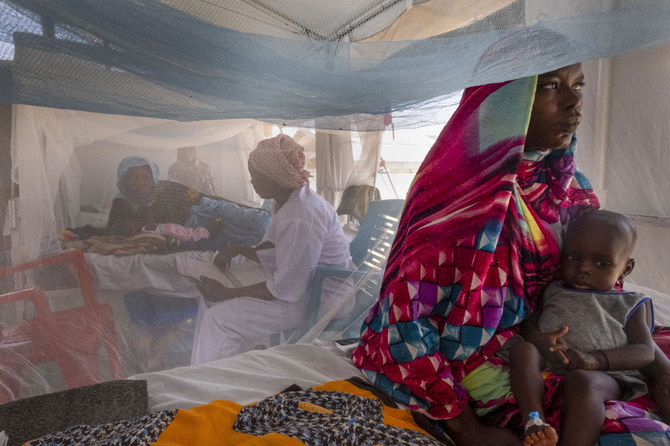
- UN said that pausing of airdrops in March had deprived of food 60,000 people who live in areas that are inaccessible by road
JUBA: The United Nations has urged South Sudan to remove newly imposed taxes and charges that led to the suspension of UN food airdrops for thousands of people who depend on outside aid.
The UN Humanitarian Affairs Agency said Monday in a statement that the pausing of airdrops in March had deprived of food 60,000 people who live in areas that are inaccessible by road, and their number is expected to rise to 135,000 by the end of May.
The UN said the new charges would have increased operational costs to $339,000 monthly, which it says is enough to feed over 16,300 people. The new charges introduced in February are related to electronic cargo tracking, security escort fees and new taxes on fuel.
“Our limited funds are spent on saving lives and not bureaucratic impediments,” Anita Kiki Gbeho, the UN humanitarian coordinator for South Sudan, said.
UN spokesman Stéphane Dujarric said in New York that the taxes and charges are also impacting the nearly 20,000-strong UN peacekeeping mission in South Sudan, “which is reviewing all of its activities, including patrols, the construction of police stations, schools and health care centers, as well as educational support.”
The UN says the South Sudan government had said it would remove the new charges and taxes but had not committed to it in writing since February.
An estimated 9 million people out of 12.5 million people in South Sudan need protection and humanitarian assistance, according to the UN The country has also seen an increase in the number of people fleeing the war in neighboring Sudan, further complicating humanitarian assistance to those affected by the internal conflict.
French police remove pro-Palestinian students from the courtyard of Sorbonne university in Paris
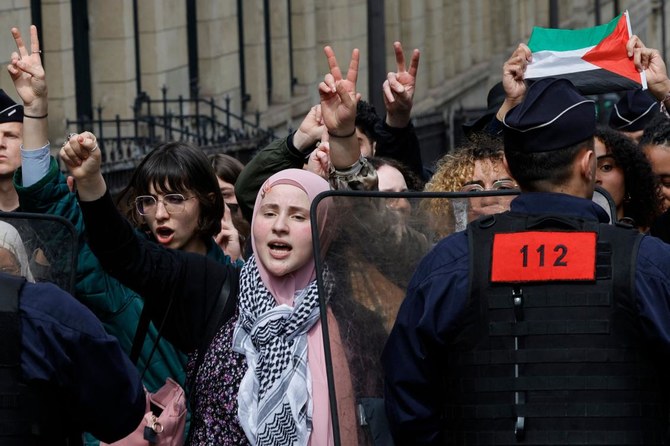
- About 50 protesters set up tents at midday Monday at the elite university’s courtyard
PARIS: French police removed dozens of students from the Sorbonne university after pro-Palestinian protesters occupied the main courtyard of the elite institution in Paris on Monday.
About 50 protesters set up tents at midday Monday at the Sorbonne university courtyard in support of Palestinians, echoing similar encampments and solidarity demonstrations across the United States.
Protesters unveiled a giant Palestinian flag and chanted slogans in support of Palestinians in Gaza, as Israel continues its offensive following the deadly Oct. 7 Hamas attack that triggered the Israeli-Hamas war. Police entered the university grounds in the early afternoon and removed them.
About 100 demonstrators took part in the protest near the prestigious university amid heavy police presence that were also guarding the university entrance to prevent students from setting up camp inside again.
Lorelia Frejo, a graduate student at the Sorbonne who joined a protest outside the university, said police used force to remove her peers from the courtyard. “They were peaceful and police took them out with no explanation,” Frejo said. Students in Paris were inspired by the protests at New York’s Columbia University who remain steadfast despite police pressure, she added.
“They (Columbia protesters) are very strong and want to fight for justice and for peace in Palestine,” Frejo said.
The Sorbonne occupies a unique place at the heart of French public and intellectual life. Last week, President Emmanuel Macron chose it as the venue to deliver a speech on his vision of Europe ahead of elections for the European Parliament in June.
Last week protests broke out at another elite university in the French capital region, the Paris Institute of Political Studies, known as Sciences Po, which counts Macron and Prime Minister Gabriel Attal among its many famous alumni.
Tensions had broken out on campus as pro-Palestinian students inspired by Gaza solidarity encampments at campuses in the United States sought to occupy an amphitheater.
On Friday, pro-Palestinian and pro-Israeli demonstrators faced each other in a tense standoff in the street outside the school. Riot police stepped in to separate the opposing groups.
The protest ended peacefully, when students agreed to evacuate the building late on Friday. The head of Sciences Po said an agreement with students had been reached.
Afghan Taliban’s treatment of women under scrutiny at UN rights meeting
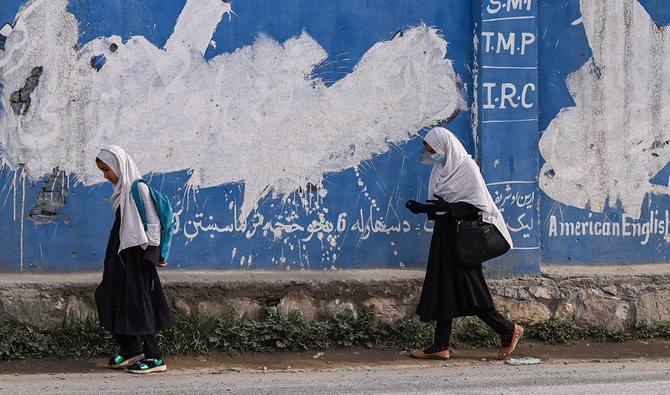
- The Taliban say they respect rights in line with their interpretation of Islamic law
- Taliban have barred girls from high school and women from universities and jobs
GENEVA: Afghanistan’s Taliban face criticism over their human rights record at a UN meeting on Monday, with Washington accusing them of systematically depriving women and girls of their human rights.
However, in an awkward first for the UN Human Rights Council, the concerned country’s current rulers will not be present because they are not recognized by the global body.
Afghanistan will instead be represented by an ambassador appointed by the previous US-backed government, which the Taliban ousted in 2021.
In a series of questions compiled in a UN document ahead of the review, the United States asked how authorities would hold perpetrators to account for abuses against civilians, “particularly women and girls who are being systematically deprived of their human rights“?
Britain and Belgium also raised questions about the Taliban’s treatment of women. In total, 76 countries have asked to take the floor at the meeting.
The Taliban say they respect rights in line with their interpretation of Islamic law.
Since they swept back into power, most girls have been barred from high school and women from universities. The Taliban have also stopped most Afghan female staff from working at aid agencies, closed beauty salons, barred women from parks and curtailed travel for women in the absence of a male guardian.
Under the US system, states’ human rights records are subject to peer review in public meetings of the Geneva-based Human Rights Council, resulting in a series of recommendations.
While non-binding, these can draw scrutiny of policies and add to pressure for reform.
The UN Human Rights Council, the only intergovernmental global body designed to protect human rights worldwide, can also mandate investigations whose evidence is sometimes used before national and international courts.
Indian students protest US envoy’s campus talk over Gaza war
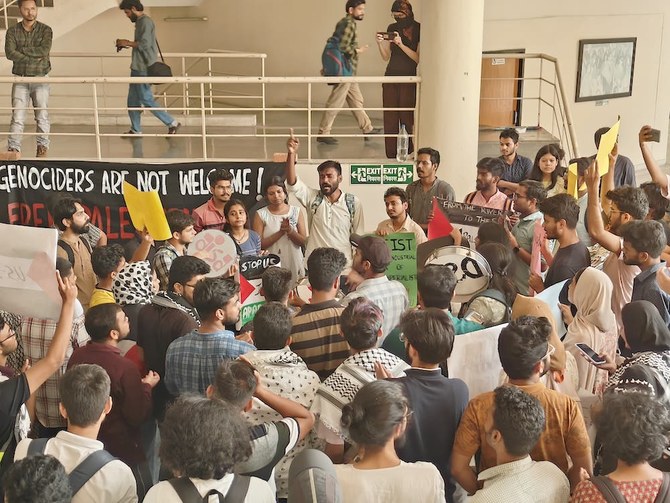
- Student-led protest led to university canceling an event involving US ambassador
- Indian students say they stand in solidarity with students protest across US
NEW DELHI: Students at one of India’s most prominent universities gathered in protest over an event involving the US ambassador to New Delhi on Monday, as they stood up against American support for Israel’s war on Gaza.
US Ambassador to India Eric Garcetti was invited for a talk on US-India ties at the Jawaharlal Nehru University in New Delhi on Monday afternoon, which would take place amid protests on American campuses demanding their universities cut financial ties with Israel over its military offensive in Gaza, which has killed more than 34,000 Palestinians.
At the university’s convention center, over 100 students organized by the Jawaharlal Nehru University Student Union protested the invitation of Garcetti, calling out his complicity “in the genocide Israel is currently doing in Palestine.”
JNUSU President Dhananjay told Arab News: “By calling such a person in the university … who is supporting the genocide, we want to tell them that JNU is not silent on this issue and we want to speak up.
“We are protesting against the US support for the genocide in Gaza committed by Israel.”
Hundreds of US college students have been arrested and suspended as peaceful demonstrations calling for a ceasefire in Gaza and divestment from companies linked to Israel spread across American campuses.
The student-led movement comes after nearly six months since Israel began its onslaught on the Gaza Strip, which Tel Aviv said was launched to stamp out the militant group Hamas.
Hundreds of thousands of housing units in the besieged territory have either been completely or partially destroyed, while the majority of public facilities, schools and hundreds of cultural landmarks have been demolished and continue to be targeted in intense bombing operations.
JNU student leaders said they stood in solidarity with the protesting students in the US.
“We are students, and we need to ask questions. If some atrocities are taking place and there are mindless killings going on, speaking out against this should be the responsibility of all sections of society,” Dhananjay said.
“The visuals that we see make us shiver and shake our conscience. If we don’t speak up, then I don’t think we have a right to be a social being.”
At the JNU campus on Monday, the student protest led to a cancellation of the event involving the US envoy.
“We feel happy that we forced the administration to cancel the talks by the ambassador,” JNUSU Vice President Avijit Ghosh told Arab News.
Despite India’s historic support for Palestine, the government has been mostly quiet in the wake of Israel’s deadly siege of Gaza.
When Indians went to the streets in the past months to protest and raise awareness on the atrocities unfolding in Gaza, their demonstrations were dispersed by police and campaigns stifled.
Members of Indian civil society have since come together to challenge their government’s links with Tel Aviv and break Delhi’s silence on Israel’s war crimes against Palestinians, reflecting similar concerns that some university students also felt.
“The US is supporting Israel in the killing of Palestinian people in Gaza. It’s also suppressing students in its country who are raising voice against the genocide in Gaza,” Ghosh said.
“We are agitated that India is being a mute spectator and not taking a clear stand against the ongoing genocide in Gaza.”


